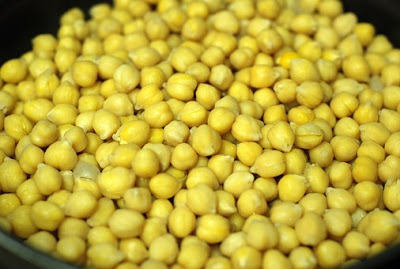Health Benefits of Phytates and Phytic Acid
The question is what can or what does fighting acid do for us so what does the evidence say perhaps the most promising and impressive potential of phytase are in its anti-cancer and anti tumor functions although the research is very early the potential is promising phytates have Antioch anti-inflammatory and immune enhancing activities all of which appear to help them target cancer cells it may block the proliferation of new blood vessels that allowed cancer cells to spread amazingly it may even rehabilitate cancer cells causing them to act normal again early evidence is promising especially for breast kidney prostate and colon cancer and of course there's a lot of research ongoing early research also suggests that high levels of phytic acid reduce your risk of developing atherosclerosis a disease process that increases your risk of heart attacks and also decreases the likelihood that platelets will stick to hardened arteries phytates are partially excreted in urine and may bind minerals during that process and so early evidence also suggests that it helps prevent the recurrence of kidney stones unsurprisingly like most things in the gut it does influence the pancreas and may help blunt the bump and blood sugar we get after eating food more researchers need to determine the implications of this finding but it will likely help with the sensation of feeling full longer and potentially help with diabetes management and prevention hemochromatosis is a disease where your body does not excrete or metabolize iron appropriately and you eventually suffer from your body dumping iron all over your body it is best managed with the help of a doctor who specializes in the disease but phytates may well help reduce absorption of iron in these patients who already have too much for osteoporosis I found a study that compared phytate consumption and found that
I had a protective effect against osteoporosis suggesting low phytate levels may be a contributing factor to the disease process and finally phytic acid is a natural antioxidants so I briefly want to touch on this mineral binding activity it's a real thing phytates clearly buying iron calcium zinc and manganese in the gut and this can affect your body's absorption however if you eat a balanced diet without excessive amounts of phytic acid then these effects are likely to be of minimal consequence the parts of the world where phytates may have the biggest effect on inhibited mineral absorption is in low-income countries where mineral fortification is uncommon and nutritional deficiencies are common there are some in the nutrition world arguing or gathering evidence to argue for D vitamin in these of the world to prevent the development or exacerbation of mineral deficiencies the other area of concern is individuals with iron deficiency who are also a risk of a fighty induced exacerbation of their illness if you are concerned about the loss of mineral absorption from phytic acid you can consider the following to potentially blunt the impact of that effect and that includes cooking or heating the foods that contain them soaking or fermenting and then also adding vitamin C or vinegar in your preparation that said the argument that certain plant foods are unhealthy because of the 5ik acid content seems unfounded although they bind minerals there's little evidence suggesting this is clinically significant and most people and the evidence is starting to mount that they have benefits although Heights and seeds whole grains and beans the content does vary widely from plant to plant so good examples include almonds beans Brazil nuts peanuts walnuts rice bran wheat bran and sesame seeds final question is do you need to worry the short answer is probably not if you consume a healthy balanced meal the evidence suggests you will not develop any mineral deficiencies from your phytate consumption and that this may actually confer some benefits the argument by some that certain plant foods are unhealthy because of their phytic acid concentration should also be taken with a grain of salt although we do need more evidence and research to make broad recommendations and draw firm conclusions and individuals without any major mineral or vitamin deficiencies phytic acid and moderation appears to be beneficial so in summary we can say phytic acid is the primary form of dietary phosphorus it has promising anti-cancer activity while research is ongoing it may also help with cardiovascular disease kidney stones insulin resistance hemochromatosis and osteoporosis it does bind and inhibit the absorption of iron calcium and zinc this does not appear to be clinically relevant in most individuals however iron deficiency anemia folks then individuals in developing nations may be more at risk than the average person the best dietary sources are seeds and you probably do not need to worry about the negative effects of phytate consumption if you consume a balanced diet...


No comments:
Post a Comment